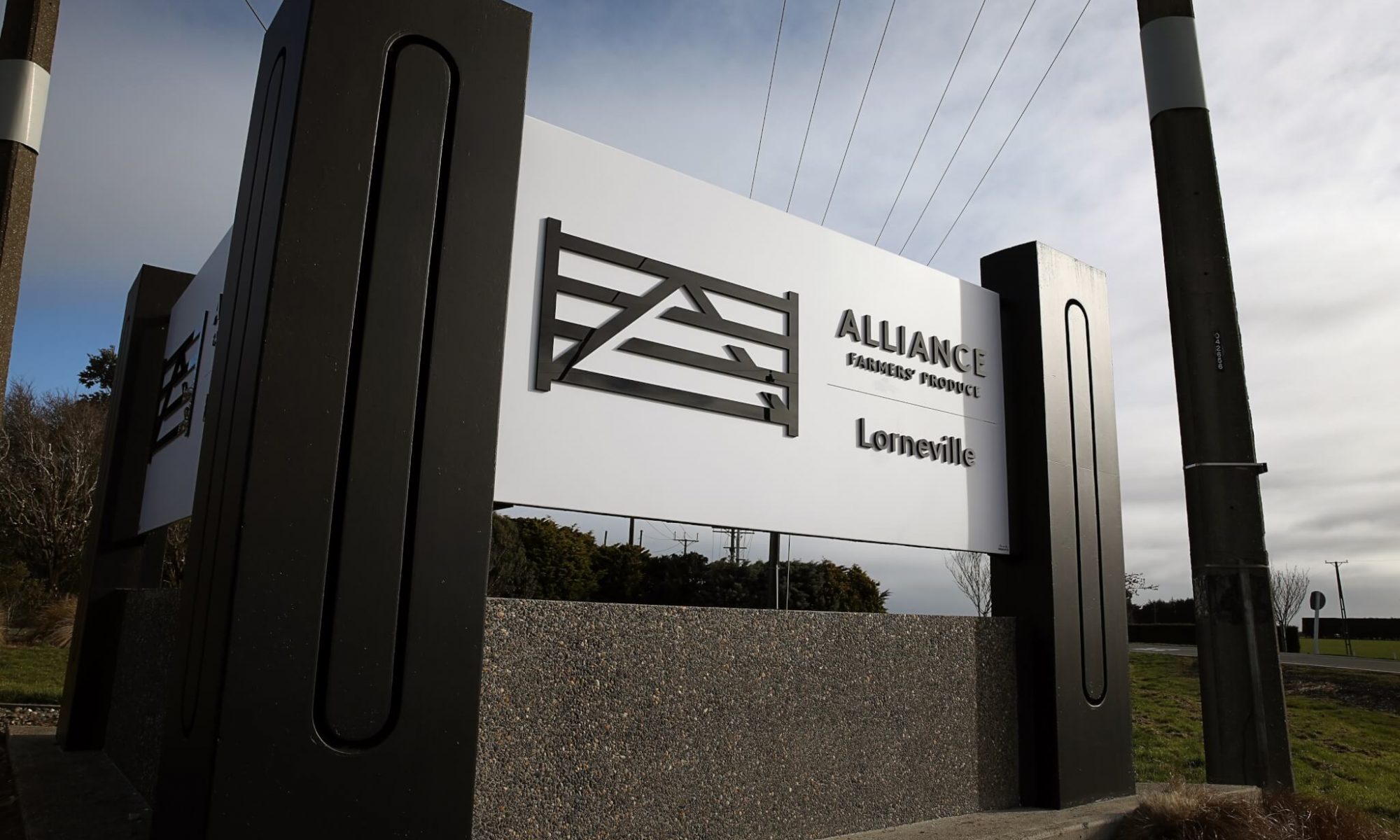By Neal Wallace
Reading Time: 3 minutes
Alliance Group shareholders are being asked to consider what they will forsake if they allow their meat company to lose its 100% farmer-owned co-operative status.
The AGL board will announce in the coming months its options to raise more than $200 million in new capital, and co-operative advocates are warning that any loss of farmer ownership also risks losing a price-setting entity and insurance for farmers to process stock when they require it.
James Lockhart, formerly a senior lecturer at the Massey Business School, conceded that time could be running out for Alliance to retain its co-operative status.
However, he said, sheep and beef prices have markedly improved on a year ago when the board sought fresh capital. At the time this was rebuffed by shareholders, but they may be more inclined to invest now.
“It’s a very different conversation to what we were having last year. There is still an opportunity to go to its farmer base,” Lockhart said.
Alliance chair Mark Wynne said commercial sensitivities and confidentiality agreements limit what can be shared with shareholders.
“We will be providing another update to our farmers later this month ahead of a series of road show meetings followed by a formal shareholder vote in the next few months.”
He said Alliance has the full support of its banking syndicate, with continued financing.
“There is confidence in our performance, in the capital raise process, the investor offers and our farmer-shareholders.”
Wynne said Alliance needs more than $200m to strengthen its balance sheet and provide a more stable financial foundation for the business.
“We’re in an advanced stage of assessment and working towards confirming a preferred option for our farmer-shareholders,” he said.
There are rumours Alliance has interest from several parties, both overseas and domestic.
Lockhart said he believes banks would support a two-stage capital raise process from shareholders – a portion now with plans to raise the balance at a later date.
He said the capital raise issue has clouded discussion about Alliance’s strategy and its procurement policy.
Three of its largest shareholders are livestock brokers and while Alliance has reduced its reliance on traders, he believes as a co-operative it should stop using them altogether.
“They have ended up with a halfway house but they should go the whole way and internalise procurement.
“It will only strengthen the relationship between drafters and the supplier-shareholders, from which they can only benefit and remove costs, noise and rhetoric.”
He said the biggest benefit of a co-operative is that in one payment it gives shareholders the value of the animal and market return.
Shareholder Andrew Morrison welcomed a board briefing that states Alliance is trading according to budget and on track to return to profit after two years of substantial losses.
“It shows they have made significant changes, so how does that equate to what decision farmers are about to face?”
Morrison said shareholders need to know what a potential investor offers in addition to cash, such as supply chain efficiencies or commercial discipline.
He urges shareholders to study and understand the implications of the decision they are about to make.
Lincoln University agribusiness Professor Hamish Gow said co-operatives such as Alliance effectively set stock prices and act as a toll processor, as Fonterra does to the dairy industry.
“If you lose co-operatives you lose a competitive yardstick that keeps prices fair,” Gow said.
Losing co-operative status could require farmers to change supply patterns. It could mean losing the processing capacity that currently allows shareholders to get stock processed as needed.
“The pressure will go back on farmers to change their business model to delivering animals when processors want them.
“The reason we have traditionally had co-operatives is that it allows us to get fair prices, run farms the way we want to and as an insurance mechanism to get livestock processed when shareholders want it.”
Former Federated Farmers meat and wool chair Toby Williams hopes to initiate a broader discussion on solutions to issues facing the sector and avoid the current scenario where companies are waiting to see who blinks first.
“It needs a catalyst instead of a decision maker. If we carry on the way we are, no one is going to win.”
Farmers Weekly Poll
Is it still relevant for a meat company to operate as a 100% farmer owned co-operative? Have your say here.
